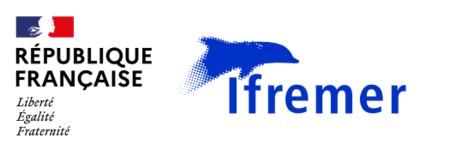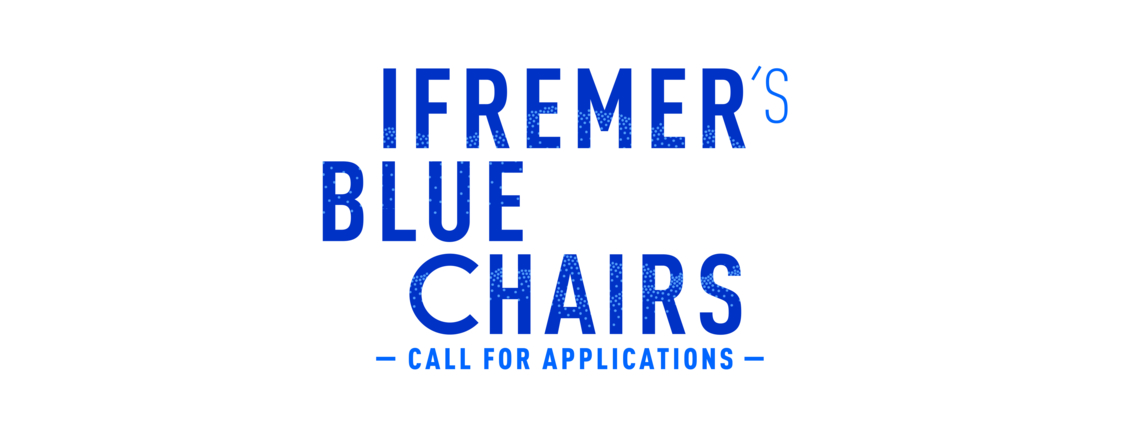Call for applications: Ifremer kick-starts its first Research « Blue Chair » to achieve excellence in ocean science
1st Blue Chair - Two scientific topics:
- Cumulative impacts on the marine environment
- Contaminants, sea and health
Location: Ifremer Atlantic research center, in Nantes
Applications must be submitted before october 15th, 2021
Ifremer kick-starts its first Research « Blue Chair » to achieve excellence in ocean science
In order to develop new fields of research, Ifremer sets up a new scheme, the «Blue Chairs», for a maximum duration of 5 years. This experimental scheme is part of the Exceptional Scientific Investment Plan
approved in October 2020 by the Ifremer’s Board of Directors, in order to accelerate and amplify the implementation of its strategic plan up to 2030 and to contribute to the objectives of the United Nations Decade of Ocean Sciences for Sustainable Development.
The 1st Blue Chair announced in 2021 and located at Ifremer Atlantic research center, in Nantes
Ifremer’s research units in Nantes have a scientific identity focused on the interactions between sea and health, in a global One Health approach (environmental, animal and human health). They investigate i.e.: the quality of marine waters and the contaminations that affect them; the land-sea continuum and the cumulative impacts of human activities; and the management of aquaculture and fisheries resources. Ocean engineering is also an essential topic for Ifremer, not only in Nantes but at national scale. The Ifremer research teams in Brest and Toulon have a strong partnership with the Ecole Centrale de Nantes and the University of Nantes in this field, particularly within the framework of the Carnot MERS Institute. The skills of the Ifremer teams in Nantes can strengthen this partnership by broadening the scope of ocean engineering to include the dimensions of environmental impacts and socio-economic drivers.
Topic 1: « Cumulative impacts on the marine environment »
The coastal ocean is subject to a growing number of natural and anthropogenic pressures generating cumulative impacts: climate change, fragmentation and deterioration of habitats, increased inputs of chemical inputs or/and nutrients, microbiological contamination, invasion of non-native species or unbalanced spreading of native species, over-exploitation of living marine resources, etc.
The issue of the cumulative impacts of human activities on the marine environment has now been clearly identified by governments and taken into account in a number of policies. However, too often, these impacts are still assessed by summing up the indices of the various pressures exerted on the environment. Tools and methods are still insufficient to adequately address the non-linearities that may appear when similar effects are repeated (e.g. several plants of the same nature along a catchment area) or different activities are associated (e.g. the cumulative impact of different pollutants, or the cumulative impacts of human activities such as renewable marine energy and fishing).
Multi-risk analysis of simultaneous or cascading events, integrating joint probabilities, appears a possible way forward. However, whatever methods are used, they must aim to bring together the various scientific disciplines working on the different risk components.
Ifremer operates observatory networks and open databases on a European scale. The institute has undertaken innovative technological developments to characterise biodiversity in situ (flow cytometry, eDNA). It can count on the most up-to-date geochemical proxies for oceanic aqueous matrices through the Ocean Spectroscopy Pole, but also on the deployment of tools facilitating in situ chemical characterisation.
These new measurements can be used to understand the processes controlling the physical and biogeochemical evolution of the water bodies of concern and to build new models controlled by the processes or data.
The main scientific objective of the Blue Chair is to develop an integrative approach, involving different research fields, to assess cumulative impacts of human activities on the marine environment.
Topic 2: « Contaminants, Sea and Health »
The ocean is both the ultimate receptacle of chemical and biological contaminations from the continents, and a supplier of resources, particularly food. Within the framework of a One Health/EcoHealth approach, the land-sea continuum is an object of primary interest that can be explored, from the understanding of contamination pathways in marine ecosystems to the contamination effects on health (both human and animal), as the exploited living resources are a link between environmental quality and consumer’s health.
Although a great deal of work already exists in this field, it often takes into consideration only one category of contaminants at the time. However, considering the exposome (i.e. the sum of environmental exposures throughout life) and its consequences on human and animal health prompts for the development of new concepts and new integrated approaches to understand the complexity of marine ecosystem contaminations and their effects. This will be the purpose of the «Contaminants, Sea and Health» chair.
This chair will be associated with the units of the Ifremer site in Nantes who are developing, through various projects and with local partners, recognised work targeting different types of contaminants (viruses and bacteria, chemical contaminants or toxic micro-algae). The main objective is to develop an integrative approach regarding the relationship between the contamination of marine ecosystems and human health. This approach will be grounded in the local projects, reinforcing the partnerhips with the health sector.
Terms of the call for applications
Candidates must have a minimum of 4 years of experience after obtaining their PhD.
The appointed candidate will be awarded funding for a maximum of 5 years, that will cover the scientist salary, at least one PhD student and one post-doctoral student, together with operating costs and possibly investment costs.
Selection of candidates
The selection of the candidates will be based on an application to be submitted to the Scientific Directorate of Ifremer before October 15th, 2021.
The application must be submitted on time, in the requested format, and be complete.
- The evaluation will be carried out by internal and external experts.
- The final decision will be made on January 15th, 2022.
- The Chair will start at the latest on October 15th, 2022.
Application
Applications should be in English and must include the following documents:
- Research project - maximum 6 pages (template to be downloaded),
- Curriculum vitae of the applicant, stating also his/her work and administrative situation at the time of application,
- List of publications and significant achievements over the last 5 years,
- Letters of support.
The research project must contain:
- The chosen theme
- The scientific challenge(s) taken up and the barriers
- Areas of innovation and areas related to societal needs
- The methodology
- How the allocated means are projected (PhD/post doc)
- The international collaborations
The location of the Chair, the research ambition of the Pays de Loire region and its support to Ifremer’s activities and projects are all elements that may freely encourage candidates to strengthen their project by seeking sources of co-financing from the Pays de Loire Regional Council or other regional players interested in either one of the two themes of the call for applications. In order for Ifremer to anticipate the administrative procedures for operating the Chair and to adapt them to the situation of the appointed candidate, the candidates must explain their individual administrative situation and the conditions and constraints they may encounter in their application.
Evaluation criteria
- Scientific Excellence of the candidate
- Originality and relevance of the project with regard to the identified themes and, more generally, the challenges of sustainable development
- Relevance of the proposed methods with regard to the identified problems
- Potential for the enhancement of the project in terms of innovation, expertise in support of public policies, edducation or scientific mediation
- Ability to create links with, and links between Ifremer Atlantic units
- Ability to integrate into the local scientific network in the Nantes area (ISite NEXT, iC MERS, etc.)
- Relevance of the proposed collaborations and partnerships (local, national or international)
- Adequacy of the budget requested for the proposed project and capacity to mobilise additional fundings
Contact
Ifremer Scientific Director: anne.renault@ifremer.fr
Ifremer Atlantic Research Center Director: pierre.labrosse@ifremer.fr
_____
About IFREMER
A pioneer in ocean science, IFREMER’s cuttingedge research is grounded in sustainable development and open science. Our vision is to advance science, expertise and innovation to:
- Protect and restore the ocean
- Sustainably use marine resources to benefit society
- Create and share ocean data, information & knowledge.
With more than 1,500 personnel spread along the French coastline in more than 20 sites, the Institute explores the 3 great oceans: the Indian, Atlantic and Pacific oceans. A leader in ocean science, IFREMER is managing the French Oceanographic Fleet and its dedicated scientists create ground-breaking technology to push the boundaries of ocean exploration and knowledge, from the abyss to the atmosphere-ocean interface.
Well-established in the international scientific community, our scientists, engineers and technicians are committed to advance knowledge about our planet’s last unexplored frontiers. They provide the science we need for informed decision-making and public policy and they transfer this knowledge and technology to businesses to fulfill public and private needs. Core to our mission is also to strengthen public awareness about the importance of understanding the ocean and its resources, and empowering future generations of leaders through education and outreach national campaigns.
Founded in 1984, IFREMER is a French public organization and its budget approximates 240 million euros. It is operating under the joint authority of the French Ministry for Higher Education, Research and Innovation, the French Ministry for the Ecological and Solidary Transition, and the French Ministry of Agriculture and Food.

